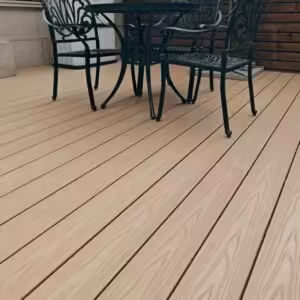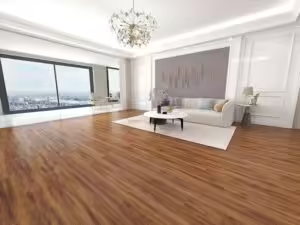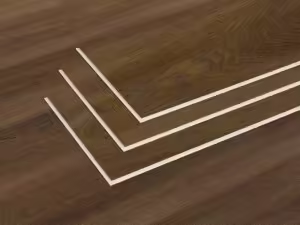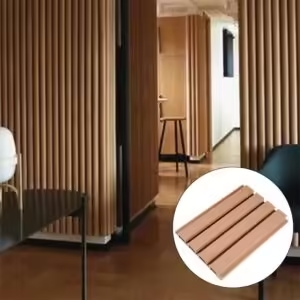Welcome to My Blog! 🌟
Before we dive into the content, let’s stay connected! Join me on my social media platforms where I share exclusive insights, engage with our amazing community, and post regular updates. Here’s how you can connect with me:
📘 Facebook: Follow Me on Facebook
Now, let’s embark on this journey together. I hope you find the content here insightful, engaging, and most importantly, valuable. Let’s explore, learn, and grow together! 🚀
Feel free to share your thoughts and feedback in the comments or on my social media—I’d love to hear from you! 😊
Table of Contents
Introduction to SPC vs WPC Flooring: What You Need to Know


Choosing the perfect flooring can be overwhelming with so many options available. Two increasingly popular choices are SPC (Stone Plastic Composite) and WPC (Wood Plastic Composite) flooring. Both materials combine the benefits of plastics and natural materials to create durable, stylish, and eco-friendly floors. However, their structural differences, applications, and performance features are distinct, which makes selecting the right one crucial.
In this guide, we will take you through 5 brilliant tips for choosing spc vs wpc flooring, breaking down the essentials you need to know before making a decision. From composition and installation to durability and design, this post will help you understand which flooring type aligns best with your needs—whether for your home, office, or commercial space.
Additionally, we’ll introduce key features of top-quality SPC and WPC products from Shandong Panel International Trade Co., Ltd., a renowned manufacturer dedicated to innovation, sustainability, and customer satisfaction. By the end of this comprehensive article, you’ll be well-equipped to make an informed flooring choice that balances style, function, and budget.
Tip 1: Delve Deep Into the Core Composition — Why It Matters in SPC vs WPC Flooring
The fundamental difference between SPC and WPC flooring lies in the composition and structure of their core layers, which governs the flooring’s performance in real-world conditions.
What Is SPC Flooring Core Made Of?
SPC flooring features a Stone Plastic Composite core, primarily made from limestone powder mixed with polyvinyl chloride (PVC). This mineral core is extremely dense and rigid, giving SPC its renowned strength, waterproof properties, and stability. The dense core allows SPC flooring to resist deformation caused by temperature or humidity fluctuations, making it suitable for environments where such changes are frequent.
What About WPC Flooring Core?
WPC flooring uses a Wood Plastic Composite core, which blends natural wood fibers with plastic polymers. This results in a softer, more cushioned core compared to SPC. The wood fibers give WPC a warmer feel and some degree of sound insulation, making it more comfortable underfoot. However, WPC’s core is less rigid, meaning it can be slightly more prone to denting or swelling under heavy loads or in excessively moist conditions.
Why Core Composition Matters
- Durability: The mineral core of SPC ensures superior resistance to wear and tear, making it a favorite in commercial and high-traffic areas. WPC’s wood-plastic core, while durable, excels more in residential settings where comfort is prioritized.
- Moisture Resistance: Both are waterproof, but SPC’s core makes it completely impervious to water, ideal for kitchens, bathrooms, and basements. WPC is waterproof too but performs best indoors where moisture exposure is minimal.
- Dimensional Stability: SPC resists expansion and contraction better than WPC, reducing the risk of gaps or buckling.
Tip 2: Installation and Maintenance — What to Expect with SPC vs WPC Flooring

Ease of installation and ongoing maintenance are key practical considerations for any flooring project.
Installing SPC Flooring
SPC flooring typically employs a click-lock system, enabling fast and straightforward installation. The rigid core ensures that the planks fit tightly without flexing, creating a stable surface that can be installed over a variety of subfloors including concrete, tile, and existing wood floors. This feature also makes SPC a favorite for DIY installers, saving on labor costs.
SPC flooring requires minimal acclimation time and can be installed in large areas with fewer joints due to its dimensional stability.
Installing WPC Flooring
WPC flooring also uses a click-lock mechanism but needs a more level subfloor because its softer core can flex. Uneven subfloors may cause issues like squeaking or premature wear in WPC. While still a relatively easy installation, professional help might be recommended for larger or more complex spaces.
Maintenance Differences
Both SPC and WPC flooring are easy to maintain:
- Sweep or vacuum regularly to remove dirt.
- Damp mop with mild cleaners for stains.
- Avoid harsh chemicals or abrasive tools.
SPC’s dense core makes it less susceptible to dents, scratches, or stains, which means it usually looks newer longer under heavy use. WPC may require slightly more care in high-traffic zones, but its surface treatments generally provide good scratch and stain resistance.
Tip 3: Durability and Performance — Comparing Wear Resistance and Longevity in SPC vs WPC Flooring
When comparing spc vs wpc flooring, understanding their durability and performance characteristics can help match the product to the intended use.
SPC Flooring Durability
SPC flooring is built for resilience. The stone plastic composite core combined with a thick wear layer (often between 0.2mm and 0.3mm) creates a surface resistant to abrasion, impact, and moisture. This makes SPC flooring perfect for:
- Commercial spaces like offices, retail stores, and restaurants.
- Residential areas with pets or children.
- Rooms prone to water exposure (bathrooms, kitchens, basements).
WPC Flooring Performance
WPC offers a cushioned feel due to its wood fiber content. Its wear layer provides resistance to everyday scratches and dents, but it generally performs best in residential environments where foot traffic is moderate. While WPC is waterproof and durable, its softer core means it is more vulnerable to damage from heavy furniture or sharp objects.
SPC vs WPC Flooring: Detailed Comparison Table
| Feature | SPC Flooring | WPC Flooring / Wall Panels |
|---|---|---|
| Core Material | Mineral (limestone + PVC) | Wood fibers + plastic polymers |
| Density | Very high, rigid | Softer, cushioned |
| Waterproof | 100% waterproof | Waterproof but less dimensionally stable |
| Durability | Excellent for heavy traffic | Good for residential use |
| Comfort | Firmer underfoot | Cushioned, warmer feel |
| Installation | Click-lock, stable, DIY-friendly | Click-lock, requires even subfloor |
| Noise Insulation | Moderate | Better sound absorption |
| Typical Applications | Commercial & residential flooring | Residential flooring and outdoor wall panels |
| Design Styles | Wood & stone looks, modern simplicity | Classic, European, traditional designs |
| Warranty | Usually 2 years | Usually 1 year |
| After-sales Support | Online technical support | Project solution & after-sales service |
| Environmental Impact | Eco-friendly, meets international standards | Eco-friendly, meets international standards |
Tip 4: Design and Application Suitability — Where SPC vs WPC Flooring Shine
Design preferences and application contexts are essential in choosing between SPC and WPC flooring.
Design Options with SPC Flooring
SPC flooring typically offers a sleek, modern look with realistic wood grain and stone textures. Thanks to advanced printing technology, these floors can replicate almost any natural material’s look while maintaining their durability. Their color palette often includes neutral tones fitting minimalist and contemporary interiors.
SPC flooring is mostly used indoors in residential and commercial settings. It can be installed in living rooms, kitchens, hallways, and commercial spaces needing both elegance and toughness.
WPC Flooring and Wall Panels for Varied Uses
WPC flooring appeals to those seeking a softer feel and a warmer aesthetic. It can be found in homes, gardens, and commercial leisure spaces. Besides flooring, WPC is widely used in outdoor applications such as wall panels, fences, and facade cladding. These panels combine the beauty of natural wood with weather resistance, making them excellent for decorative and protective outdoor surfaces.
Manufacturers like Shandong Panel International Trade Co., Ltd. provide a variety of customizable colors and sizes for both SPC and WPC products to meet personalized needs.
Tip 5: Cost, Warranty, and Customer Support — Making a Smart Investment in SPC vs WPC Flooring

Budget and after-sales service are often deciding factors in the flooring purchase.
Cost Considerations
SPC flooring generally offers a better cost-performance ratio, particularly for commercial or high-use areas. It tends to be slightly less expensive than WPC due to its simpler core composition and widespread production.
WPC flooring and wall panels, because of their softer core and multi-purpose use (including outdoor panels), may come at a premium. However, many buyers are willing to pay extra for the added comfort and design versatility.
Warranty and Support
SPC flooring products typically come with a 2-year warranty covering manufacturing defects and surface wear. WPC flooring and panels often offer a 1-year warranty. Leading suppliers, such as Shandong Panel International Trade Co., Ltd., pride themselves on comprehensive after-sales support including technical assistance and project consultation.
Conclusion
Choosing between spc vs wpc flooring depends heavily on your specific needs:
- For high durability, waterproofing, and a modern look suited for commercial or busy residential spaces, SPC flooring is an excellent choice.
- For softer comfort, warmth, and outdoor decorative applications like wall panels, WPC flooring provides unmatched benefits.
Both options are eco-friendly, high-quality, and backed by industry-leading manufacturers who emphasize innovation and customer satisfaction.
FAQ
Is SPC flooring better for wet areas than WPC?
Yes, SPC’s rigid mineral core makes it fully waterproof and more stable in wet environments.
Can I install WPC flooring outdoors?
WPC flooring is mainly designed for indoors, but WPC wall panels are excellent for outdoor use.
Which flooring is quieter underfoot, SPC or WPC?
WPC tends to absorb sound better due to its softer core.
How long does SPC vs WPC flooring last?
SPC flooring generally has a longer lifespan in heavy-use areas due to higher durability.
Do both flooring types support customization?
Yes, especially from manufacturers like Shandong Panel International Trade Co., Ltd., both SPC and WPC products can be customized in color, size, and design.
